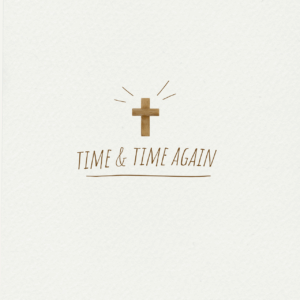I’ve been reading through the minor prophets in the Old Testament. At first, I would just quickly read through them and not put much thought into them. But lately, the Lord has been showing me more. I keep seeing His faithfulness and unfailing love shine, even when His people turn away.
The Lord keeps His promises, and to see them over and over in Scripture, not just in the New Testament but also in the Old Testament, is amazing! Too often, I only think of the Old Testament as God’s judgment on Israel or having them drive out others from the land He promised them.
As I was reading Micah, I said to my mom, “Look, Israel has turned to their sin and false gods again, but watch, God will forgive and restore them.” Not as an “Oh, here Israel goes again,” but more like, “Watch what the Lord does!” excited to see His justice and mercy in action.
In Micah 2, God pronounces judgment on Israel because of their sin (Micah 2:1–3). Israel had wandered from God’s ways again, and because He is just, judgment was required. But at the end of the chapter, there is a glimpse of hope:
“Someday, O Israel, I will gather you;
I will gather the remnant who are left.
I will bring you together again like sheep in a pen,
like a flock in its pasture.
Yes, your land will again be filled with noisy crowds!
Your leader will break out and lead you out of exile,
out through the gates of the enemy cities,
back to your own land.
Your king will lead you;
The Lord himself will guide you.” (Micah 2:12–13)
Even in judgment, God was already showing mercy. He had not forgotten His people or His promises. Psalm 103:10–12 reminds us of this same love:
“He does not treat us as our sins deserve or repay us according to our iniquities. For as high as the heavens are above the earth, so great is his love for those who fear him; as far as the east is from the west, so far has he removed our transgressions from us.”
As you continue through Micah, you see God’s judgment again, but by the time I finished, His heart is on full display:
“Who is a God like you,
who pardons the guilt of the remnant,
overlooking the sins of his special people?
You will not stay angry with your people forever,
because you delight in showing unfailing love.
Once again you will have compassion on us.
You will trample our sins under your feet
and throw them into the depths of the ocean!
You will show us your faithfulness and unfailing love
as you promised to our ancestors Abraham and Jacob long ago.” (Micah 7:18–20)
Israel wandered time and time again. And time and time again, God judged their sin, but He also forgave, showed mercy, and restored. That’s who He is.
It made me think about how often we wander, how quickly we forget, and how easily we slip back into old ways of living. Yet God does not forget His covenant with us. Through Jesus, we see that same pattern: sin, judgment, forgiveness, and restoration. Because of the cross, we do not just get temporary restoration; we are fully reconciled to God. Lamentations 3:22–23 captures this beautifully:
“Because of the Lord’s great love we are not consumed, for his compassions never fail. They are new every morning; great is your faithfulness.”
That encourages me because I know I do not always get it right. I fall short. I mess up. I mess up big. But God’s love is steady. His judgment is not about pushing us away but drawing us closer, protecting us, and ultimately restoring us. Hebrews 12:5–6 reminds us: “My son, do not make light of the Lord’s discipline, and do not lose heart when he rebukes you, because the Lord disciplines the one he loves, and he chastens everyone he accepts as his son.”
His goal is always restoration.
Reading Micah reminded me that God is both just and merciful. He doesn’t overlook sin, but He doesn’t abandon His people either. His faithfulness is greater than our unfaithfulness, which is good news for Israel and us today.
If you feel the weight of God’s correction or notice areas where you’ve strayed, remember that His discipline is not rejection but love.
His restoration is sure. Time and time again, He proves His mercy is greater than our mistakes.



